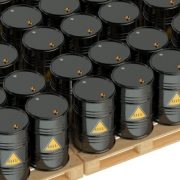
The National Hydrocarbons Commission (“CNH”) submitted a draft of the Guidelines for Drilling Wells for Exploration and Production of Hydrocarbons (“Lineamientos de Perforación de Pozos para las Actividades de Exploración y Extracción”; the “Guidelines”) to the Federal Commission for Regulatory Improvement (“COFEMER”).
The Guidelines regulate well permitting, design, construction, integrity, maintenance, and abandonment standards and requirements for all oil, gas, and injection wells in Mexico, whether on-shore or off-shore, conventional or non-conventional, and which apply to both private industry and state productive companies. They regulate best oil field practices and standards for various activities; provide for inspection, audit, and enforcement; and, include provisions on operator and non-operator liability. Operators and non-operators are liable for all damages related to their activities (well drilling, design, construction, completion, and abandonment, etc.), regardless of whether their underlying exploration contracts with CNH or “entitlements” are in effect.
The Guidelines include the following attachments:
-
Glossary of defined terms.
-
Regulatory requirements on best practices for the design, construction, termination, integrity, maintenance, and abandonment of wells. These requirements are considered to be hierarchically one step below official Mexican standards (NOMs), which means that the latter have control over CNH’s referenced regulatory requirements.
-
Guidelines for registering oil and gas wells and reservoirs/fields.
-
Guidelines for well-permitting applications.
-
Guidelines for ensuring well integrity (e.g., casing and cementing requirements and standards).
-
Format to request administrative registration of wells.
-
Format to apply for drilling and completion well permits.
-
Format for applications to modify previously granted well permits.

Scroll to top








